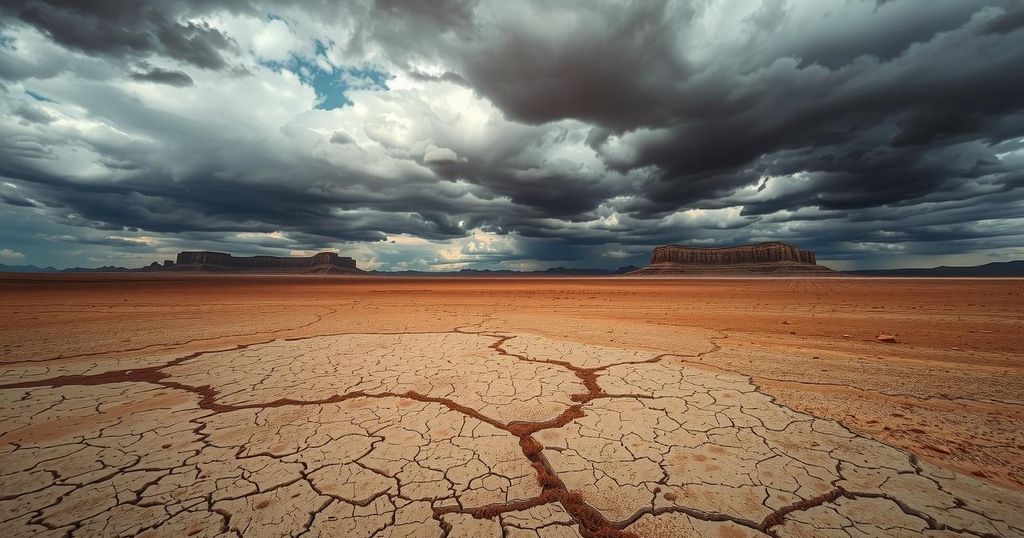Global news
AFRICA, ARBITRARY DETENTION, ASIA, CENTRAL AFRICAN REPUBLIC, CHAD, DARFUR, EMIR, EUROPE/ASIA, HUMAN RIGHTS, HUMANITARIAN CRISIS, ICJ, INTERNATIONAL LAW, LIBYA, RAOUL WALLENBERG CENTRE FOR HUMAN RIGHTS, RAPID SUPPORT FORCES, RSF, RUSSIA, SUDAN, SUDANESE ARMED FORCES, UAE, UNITED ARAB EMIRATES, WAR CRIMES, WEST DARFUR
Isaac Bennett
0 Comments
Sudan Accuses UAE of Genocide Facilitation Against Non-Arab Community at ICJ
Sudan has filed a case against the UAE at the ICJ, accusing it of facilitating genocide against the Masalit community in West Darfur through support for the RSF. The UAE has rejected the allegations as baseless. Reports of ongoing human rights violations, including rape and violence, highlight the serious situation in Sudan.
The International Court of Justice (ICJ) has announced that Sudan has initiated legal proceedings against the United Arab Emirates (UAE) over allegations of genocidal actions facilitated by the UAE against the Masalit community in West Darfur. Sudan accuses the UAE of providing significant financial, political, and military support to the Rapid Support Forces (RSF) and associated militias responsible for severe human rights violations including genocide, murder, and forced displacement.
Sudan has requested provisional measures from the ICJ, demanding that the UAE fulfills its obligations under the Genocide Convention. These obligations include taking necessary actions to prevent harm to the Masalit group and ensure their protection against acts that could lead to their destruction or restriction of birth rates.
In response, the UAE has sought immediate dismissal of the case, labeling it as “baseless.” An official from the UAE criticized Sudan’s application as a “cynical publicity stunt” aimed at distracting from the Sudanese Armed Forces’ (SAF) alleged complicity in ongoing atrocities in Sudan.
In April 2024, the Raoul Wallenberg Centre for Human Rights released an independent investigation into allegations of genocidal actions in Darfur, asserting that the RSF and allied militias have consistently committed genocide against the Masalit and other Non-Arab ethnic groups. The report also implicated other nations, including Libya, Chad, the Central African Republic, and Russia, and emphasized the responsibility of all 153 signatories of the Genocide Convention to act against complicity in such crimes.
The ongoing violence in Sudan has historical roots, tracing back to the 2003 Darfur crisis, which erupted following the rise of rebel groups protesting the government’s oppressive actions towards non-Arab communities. The previous government, under Omar al-Bashir, retaliated against these groups with extreme violence, resulting in hundreds of thousands of deaths and displacements. The United States formally recognized these acts as genocide, leading to criminal proceedings against al-Bashir.
Reports indicate that the RSF continues to employ rape as a weapon in the conflict, with numerous instances of sexual violence reported. UNICEF disclosed that 220 cases of child rape occurred in Sudan in 2024, with victims as young as one year old, highlighting the pervasive and horrific nature of these acts amidst the ongoing conflict.
The International Court of Justice is now confronted with serious allegations from Sudan against the UAE regarding its role in facilitating genocide against the Masalit community. Sudan has requested urgent measures to protect this threatened group, while the UAE seeks dismissal of the claims. The broader context reveals a long-standing history of violence in Sudan, highlighting the critical need for international accountability and action to prevent further atrocities.
Original Source: www.moroccoworldnews.com




Post Comment